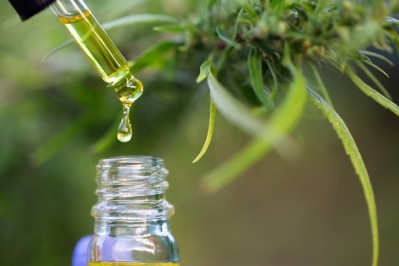Amendment to military funding bill would allow soldiers to openly use CBD products

The amendment was put forward by Rep. Tulsi Gabbard, D-HI, and was attached to the National Defense Authorization Act (NDAA) that was passed this week by a 336-71 vote.
Amendment put forward by noted hemp advocate
Gabbard, who is a military veteran and who also was briefly one of the candidates for the 2020 Democratic Presidential nomination, has advocated for the hemp industry in the past. In 2019 she introduced the ‘Hemp for Victory Act,’ which her office said was meant to incentivize family farms to get into the hemp growing arena and sought to protect them against large corporate players. The bill, which did not make it out of the House Subcommittee on Health, was deliberately styled after the World War II victory gardens effort.
The NDAA now goes to the Senate for further debate. While the future of the CBD amendment is unclear, Senate Majority Leader Mitch McConnell, R-KY, is a noted friend of the sector, having sponsored legislation in the past on behalf of the thriving hemp growing and processing industry within his state.
Gabbard’s amendment says that a “member of the Armed Forces” may not be prohibited from ”the possession, use, or consumption” of hemp or hemp-derived product to as long as the crop meets federal standards.
In addition, the possession, use, and consumption of such products must be “in compliance with applicable Federal, State, and local law.”
Hemp advocates: Recognition is overdue
Steve Hoffman, principal in the firm Compass Natural Marketing, said the news was welcome and potentially could open a new door in preventive health care for members of the military. Hoffman has a long history working on hemp issues, having helped with communications on some of the early state cannabis initiatives that first opened the door to the trade.
“The news a month ago was that the military was going to ban all hemp products, so this is welcome,” Hoffman told NutraIngredients-USA.
Hoffman said soldiers who have suffered trauma from stress or who have been injured outright could benefit from hemp/CBD products.
“I applaud the sponsors behind this bill that would allow service members to use the products and potentially not have to resort to harsher pharmaceuticals,” Hoffman said.
Dr Michael Lewis, MD, medical adviser to the CBD product manufacturer CV Sciences, agreed that hemp/CBD products could be of great benefit to members of the military and that the recognition is long overdue. Dr Lewis retired in 2012 with the rank of colonel after a 31-year career as an Army doctor.
“As a retired Army doctor and as a representative of CV Sciences I think this is exciting and long overdue. Any tool that we have that can decrease these rates of PTSD and suicide among members of the military we should be seriously looking at and using,” he said.
NIH research suggested CBD’s potential
Following his retirement Dr Lewis founded a nonprofit called the Brain Health Education and Research Institute. There he continued the work he’d begun while on active duty using omega-3s to help traumatic brain injury patients.
Dr Lewis said research coming out of National Institutes of Health that found an endocannabinoid-like derivative of DHA that was active in the brain, dubbed ‘synaptamide,’ gave him the idea that there could be a synergy between omega-3s and CBD.
“In my practice I have patients coming back to me and saying that using the fish oil has been great but that the CBD has been life changing. When they add the CBD it accelerates the positive changes they’ve been seeing,” he said.
Many questions left unanswered
While Dr Lewis lauds the potential of Rep. Gabbard’s amendment, he said there is still a long way to go before hemp/CBD products might become readily available on military bases.
“There are a lot of questions that would pop up for anybody. The biggest concern is on the THC side of things,” he said.
“As you know hemp naturally contains some amount of THC. Not only is the language of the amendment not very clear, the understanding of the issue itself is not very clear in terms of the manufacturing of these products and the potential for adulteration with THC. How would you enforce that? Is the military now going to be testing products for THC?” Dr Lewis added.
Conservatism of military medical authorities
He also said there is an entrenched inertia and conservatism on the part of military medical authorities that’s hard to overcome quickly.
“In 2011 I published a study where we looked at the omega-3 levels in soldiers and showed that there was a 65% increase in suicides in soldiers with the lowest level of omega-3s,” he said.
Dr Lewis thought with that evidence in hand it would be fairly straightforward to have an omega-3s supplementation regimen be recommended as standard practice for members of the military. But that never happened. Now, almost 10 years later, he said he’s seen that omega-3s are starting to become a fairly common recommendation on the part of military doctors even if there is no official policy in place.
“I’m having a difficult time imagining a doctor at Walter Reed starting to recommend CBD. But with the ongoing stresses in the military, really going back to 9/11, there is a great need for these products,” he said.
“Soldiers, sailors, airmen, Marines—they want these products and they have started using them when they think they can get away with it. I think it’s going to start at the ground level and there will a push upward,” Dr Lewis added.












